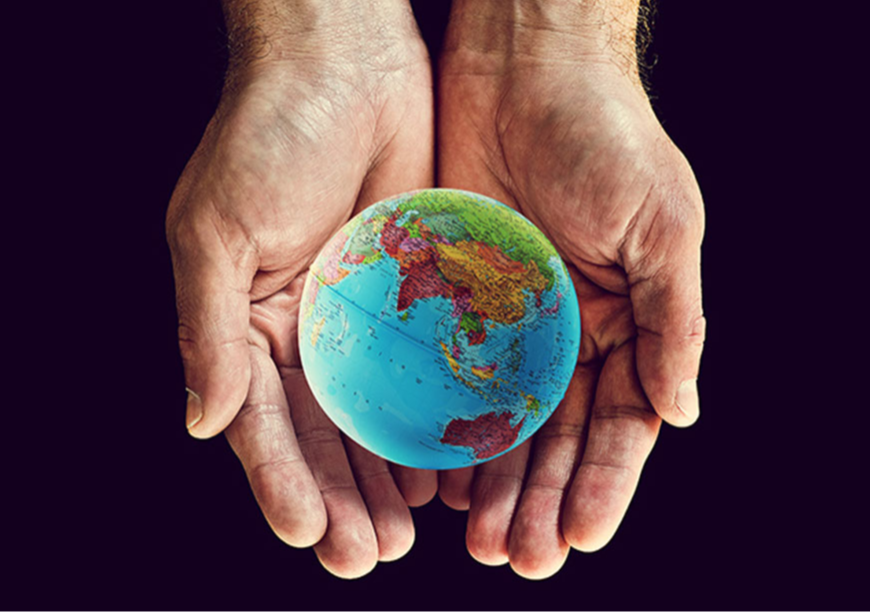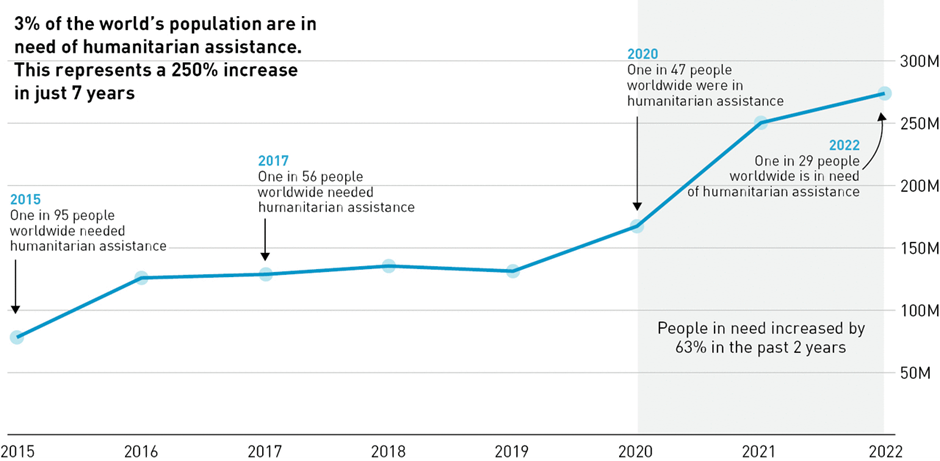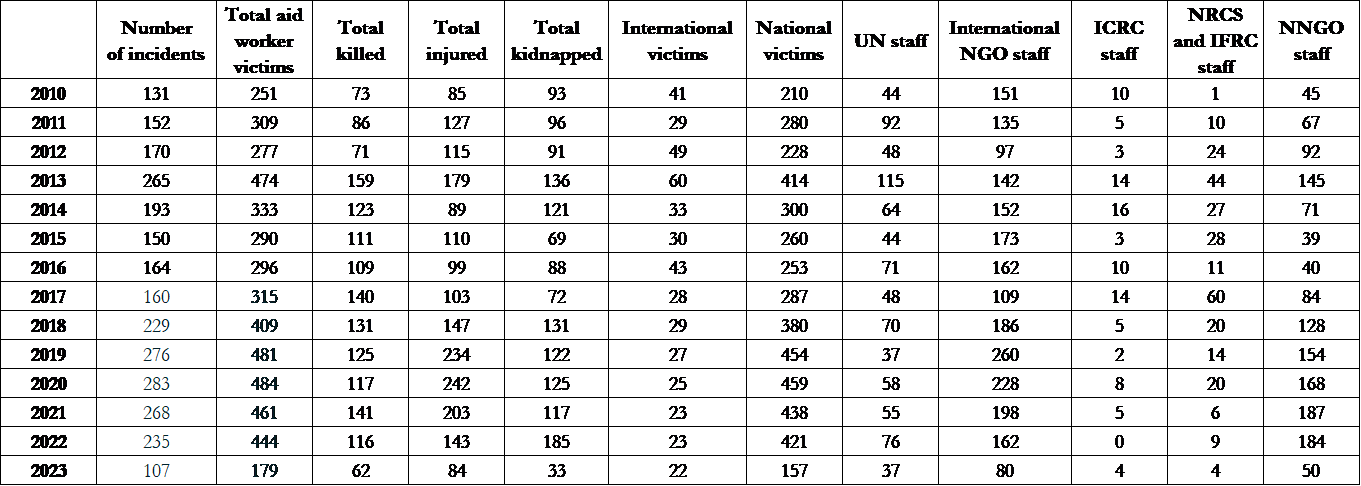
Every year, the 19th of August is observed as World Humanitarian Day (WHD) to honour the humanitarian workers who were affected due to the crisis while working towards the well-being of the people. The WHD focuses on bringing partners worldwide to advocate for the safety and security of aid workers since international cooperation can ensure coordinated and collective measures for continued assistance for the affected population. Hence, the United Nations (UN) relies upon the international community for cooperation in relief activities during emergencies arising from manmade and natural disasters. The United Nations Office for the Coordination of Humanitarian Affairs (OCHA), the United Nations Development Programme (UNDP), the United Nations Refugee Agency (UNHCR), the United Nations Children's Fund (UNICEF), and the World Food Programme (WFP), the United Nations Population Fund, World Health Organization (WHO) are some of the prominent agencies under the aegis of the UN that primarily carry out assistance. According to the UN, the number of people needing humanitarian assistance has increased from 235 million to around 360 million in 2023. Further, the UN has estimated that US$ 55.21 billion would be required to ensure the assistance, making international cooperation one of the ways to pool resources and raise funds.
Figure 1: Number of people needing Humanitarian Assistance

Source: Humanitarian Aid Workers - CDC Yellow Book 2024
Humanitarian aid is extended to relieve suffering, enable recovery, and strengthen preparedness. One of the critical factors determining the course and impact of humanitarian assistance is aid workers, who constitute a diverse group of individuals from various professional backgrounds, both from national and international agencies. On 19th August 2003, a bomb attack on Baghdad’s Canal Hotel killed 22 humanitarian aid workers. After this incident, the United Nations General Assembly adopted a resolution to designate 19th August as World Humanitarian Day (WHD) to promote the safety of the aid workers. The safety and security challenges due to exposure to a conflict environment are a matter of concern. Although security challenges remain an issue, as shown in Table 1, research has shown that humanitarian assignments are stressful and impact workers’ health adversely. While work-related stresses range from access to resources to moral dilemmas, organisational stressors are also a contributing factor. While humanitarian workers are trained to enhance resilience and adaptability to conflict settings, long periods of mission deployment could lead to chronic stress, anxiety, and post-traumatic stress disorder (PTSD).
Table 1: Summary of significant attacks on aid workers between 2010-2023

Source: Aid Worker Security Database (AWSD)
Protecting humanitarian workers and aid from attack is a critical challenge that, if overcome, could help increase the overall assistance's efficiency. Humanitarian organisations have developed systems internally for reporting violence, such as the Security Incident Reporting System of the UN Department of Safety and Security (UNDSS). Similarly, the International Committee of the Red Cross and WHO have databases maintained for healthcare workers. While these measures are a step towards ensuring the physical protection of the aid workers, strengthening compliance with the International Humanitarian Law (IHL) is more desirable as the attacks on aid workers continue. One reason for this is the legal structure of the IHL protection, under which the aid workers from non-governmental organisations, who make up the majority in number, miss out on protection that specific categories of workers get. Currently, IHL protects the workers by prohibiting attacks against them, as in the case of any other civilians. Additionally, it also accords special protection to the UN peacekeeping missions and medical personnel of the armed forces. Thus, with humanitarian needs expected to continue, strengthening the protection of all aid workers is desirable, given their critical role in ensuring assistance in conflict settings.
While physical security is a tangible element, ensuring the betterment of health priorities, especially mental health, is also equally important. At present, there are guidelines for the psychological care of humanitarian workers, such as “Guidelines for Good Practice: Managing Stress in Humanitarian Workers” and the “Guidelines on Mental Health and Psychosocial Support in Emergency Settings” established by the Inter-Agency Standing Committee (IASC) of the UN. However, these are viewed to be top-down, leading to the recommendation of a comprehensive and practical framework to ensure the overall well-being of aid workers such as by building on the World Economic Forum’s call to move from charity towards bringing resilience. As highlighted in the various research, the need to consider the psychological health of aid workers has been a major concern. However, these tend to be limited to academics. Hence, taking a cue from such studies to develop actionable suggestions is necessary. Some steps are defining the procedures for availing of psychological assistance and working towards determining the staff who need such support. Build an in-house database to categorise the workers based on intensity and number of deployments. Further, the staff must understand the area they would be deployed to; thus, mandating a pre-deployment briefing session explaining the possible dangers that could be encountered can help acclimatise. Further, it is also necessary to include a post-deployment briefing which could also double as a platform for analysing the mental health support required and how to get it.
Capacity building and specialised training critically influence the efficacy of humanitarian responses. While its importance is well-identified in literature, few opportunities provide a comprehensive program that could train, educate and prepare workers. Hence, international cooperation could overcome this gap, as it brings in resources and varied expertise. Such an initiative can equip the workers with theoretical insights and skills to tackle the complex nature of contemporary conflicts. Influenced by the 2030 Agenda, the 2016 World Humanitarian Summit brought the idea of working together. Therefore, interlinking SDGs and humanitarian aid can have significant implications in the policy realm since achieving multiple goals can lead to resolving the crisis and vice versa. Goals 16 and 17, especially, put humanitarian aid as a focal point for international cooperation by stressing building on the need for resilient institutions for peace and justice through international cooperation. Hence, such collective initiatives serve the dual purpose of achieving SDGS and ending critical humanitarian needs.
The abovementioned ways are a few steps that can pave the way for promoting resilience and enhancing the adapting capacity of the workers by helping to strengthen the existing laws. While cohesion to the norms of humanity, impartiality, and neutrality play a role in protecting humanitarian workers, bringing in a few changes in how the operations help create a physically and mentally safe environment for the workers. UN Secretary-General António Guterres had called to ensure the protection and delivering essential life needs such as food, water, shelter, education, and health in the regions stricken with disasters and conflicts. Thus, building on 2022’s call for a collective endeavour, the 2023 WHD campaign aims to reaffirm the commitment to serving communities in need #NoMatterWhat.
Kiran Bhatt is a Research Fellow at the Centre for Health Diplomacy, Department of Global Health, Prasanna School of Public Health, Manipal Academy of Higher Education.
Sanjay Pattanshetty, Head of the Department of Global Health Governance and Coordinator of Centre for Health Diplomacy, Prasanna School of Public Health, Manipal Academy of Higher Education.
The views expressed above belong to the author(s). ORF research and analyses now available on Telegram! Click here to access our curated content — blogs, longforms and interviews.






 PREV
PREV



